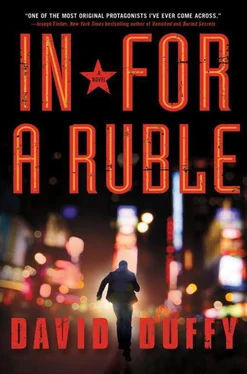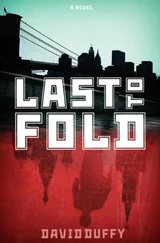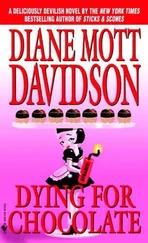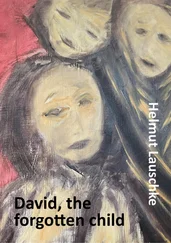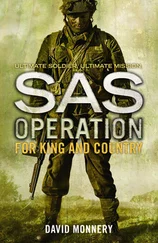Rilke nailed fear. I’d have to look into what he had to say about doubt. Beria fell into step.
Excellent, Electrifikady Turbanevich. You’ve assessed the situation with astute Cheka prescience. And, as usual, totally sidestepped the question of whether you’re ready to do anything about it.
I was about to defend myself when my ruminations were stopped in their tracks, as was I, by the improbable sight of a large statue of Vladimir Ilyich Lenin in full stride, arm raised to show the way, atop a Houston Street apartment building. I’d heard about this, but never seen it. The brainchild of the developer who’d put up the otherwise mundane brick complex, which he, of course, named Red Square. The statue, a large clock with misplaced numbers around its face and the clever name were supposed to give the building some Lower East Side hipster chic. No doubt Lenin changed the world. Few would argue for the better, and even they would have a hard time applying concepts like hip or cool to the first Soviet dictator. I wondered idly whether the developer had considered what his neighbors a few blocks to the north—the heart of Ukrainian New York—thought of his vision.
Thomas Leitz saw me and peeled off a small group as I approached.
“Mr. Leitz? I’m Turbo.”
I held out a hand, which he ignored while looking me up and down.
“Tough guy. Boyfriend beat you up?”
One more interrogatory chore. The Leitz siblings were consistent in their absence of eagerness to help their big brother.
“He did land a few blows,” I said, leaving his question, if there was one, unanswered. “Can I buy you a cup of coffee?”
“We don’t have that much to talk about. I don’t know anything about my big brother’s business and what I do know I’m not sharing. Any more questions?”
Coercion worked with Jonathan Stern. Thomas Leitz looked an easier pushover. “About thirty-five thousand.”
A frown on the chinless face. “What’s that supposed to mean?”
“Four credit cards. Thirty-five thousand dollars. You could be wearing some of it right now. Carried for months, paid off in November. You’re already another eight grand in the hole. Where’s the money come from?”
“Who are you?”
“A well-informed guy. I know a lot more. Question is, what am I going to do with it?”
“I don’t have to talk to you. I don’t care what Sebastian says.”
“Eight grand says you do. You going back to the same sugar daddy to take care of that? What’s he going to want this time?”
“WHAT ARE YOU TALKING ABOUT?”
“Tall guy with buckteeth and bad skin. Know him?”
“NO!”
“I don’t believe you. But I’ll tell your brother what you said.”
I didn’t think Thomas Leitz had ever met Nosferatu, but I needed to be sure, before we got on to other matters. I’d taken a step and a half west along Houston Street when he cried, “Wait!”
I took another couple of steps for emphasis before turning back. I don’t think he was shaking, but he could have been.
“Let’s go somewhere we can talk,” I said.
He nodded once and I followed him to a footbridge over the FDR Drive and into a park scattered with baseball fields between the roadway and the river. I’ve run through it on many mornings. He found a bench and sat at one end, head in hand, elbows on knees, eyes straight ahead, not looking at me. I sat at the other.
“Where’d you get the money?” I said.
He shook his head. “Not from anyone you know.”
“The tall guy?”
Another shake. “I don’t know any tall guy.”
“Some people came to see you. Tell me about them.”
He nodded, twice. “A man and a woman. Lawyers, they said.”
“Names?”
“Don’t remember. I told them I had nothing to say. We didn’t talk long.”
“What did they want?”
“Questions about Sebastian, his business, his family. Some kind of background check, they claimed.”
“Describe them.”
He was no more revealing than Marianna or Julia, but they had to be the same two people.
As he talked, a lone man crossed the footbridge and turned north away from where we sat. He was of medium height and build and wore a tan overcoat and a flat cap. He followed a path until he was fifty yards away and leaned on the railing, looking out over the river.
“They ask about anything else?” I asked Thomas.
“I don’t remember. The rest of the family, I guess. Marianna and her husband. Julia and Walter. I didn’t tell them anything, if that’s what you want to know.”
“They ask about your debts?”
“NO! I told you…”
“So where did you get the money?”
“STOP IT!”
“I’m not a nice guy, Thomas, and I need information. Where did you get the money?”
“I… I got a loan.”
“Who from?”
“I don’t have to tell you that.”
“Family?”
He nodded slowly.
“Who?”
“I have… friends.”
Lying, like waiting, is an acquired skill. It takes practice. Thomas Leitz wasn’t good at it. The Cheka’s approach to interrogation was to use the first lie like a club and beat the subject up and down until he offered up all the other mistruths, half-truths and made-up truths he was harboring. That would’ve been easy with Thomas—he handed me the club at the first opportunity, and I already knew the answer anyway. The Cheka, however, was always after a confession first, truth was rarely an objective. I was looking for honest answers—and help. Thomas Leitz could supply either or both, though not if I turned myself into a complete enemy. I changed the subject.
“I spent the morning with Marianna. She’s in pretty bad shape.”
“Her husband’s an asshole.”
“Maybe. I think she needs help. She’s hitting the bottle hard.”
“Why are you telling me?”
“You’re her brother.”
He shook his Mohawk and looked at the ground. “Poor Marianna. I do feel sorry for her. But she shouldn’t have married him if she didn’t love him.”
“That’s what happened?”
“What do you think, smart guy?”
He was stepping around something there.
“She told me she lent you money once. Fifteen grand. You hit her again for twenty-five and she turned you down. She said you weren’t very nice about it.”
He raised his head and laughed out loud—braying long and high. Tan Coat turned to check us out.
“HAH! That’s rich. Did she tell you she was smashed, so blitzed that she practically knocked over a waiter with a tray of food? Three brandies while we were there. While I was there, who knows what she drank after I left. She was still mixing them with ginger ale then. Ugh.”
He looked around in a conspiratorial fashion and lowered his voice. “Did she tell you what she called me? This was before we even talked about money. When she ordered the second drink, I suggested maybe coffee would be good. She told me to mind my own fucking business. Her words, not mine. Then, when I said maybe she should think about help, she said, ‘At least I’m not queer.’”
He leaned back and raised his palms upward, as if to ask, What am I supposed to do? I now had two sides of another story. I didn’t care much where the truth lay this time, but the evidence of Marianna’s troubles—and her ability to pretend they didn’t exist—was mounting.
“When was the last time you saw her?”
“Christmas. Family rat-fuck. At Sebastian’s, of course. I try to avoid them as a rule, but holidays…” He shrugged. His voice had taken on a bitter edge.
“The whole family there?”
“Uh-huh, Sebastian, Jenny, the kids. Marianna and her children. Not Stern. Even Julia put in an appearance, mainly so she could tell everyone about all the oh-so-important bullshit she’s working on. And Walter was there. Hapless Walter. That’s Julia’s husband. First time we’d seen him in years. Sebastian sets great store by family acting like family, and Sebastian gets what he wants. Always has. You’re so smart, you’ve figured that out already.”
Читать дальше
